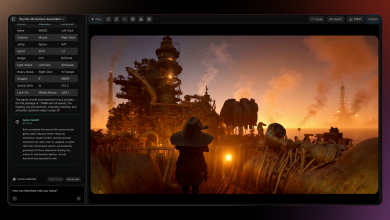
When ChatGPT was first publicly released three years ago, the travel industry wasted little time experimenting with LLM adoption. Within one year after ChatGPT went public, Booking.com and Expedia both launched beta AI trip planners, Tripadvisor launched an AI itinerary generator, and many companies, like Skyscanner, began building plug-ins that worked directly in ChatGPT. A groundswell of AI travel startups, like Mindtrip and Layla, also entered the stage around this time.
After the initial wave of novelty and hype around LLMs wore off, discussions about generative AI revolutionizing the travel sector quieted down. While AI integration for many of these companies was seen as successful and provided a measurable lift, it certainly hasn’t yet revolutionized the industry. A large reason for this was the mismatch between the major early investment in AI by travel companies and the much slower adoption pace among individuals.
The Consumer Catches Up
Fast forward to late 2025, and the picture looks much different. As of September 2025, a vast majority of Americans (66%) have not only used AI, but specifically for travel planning. Over three-fourths (77%) now trust AI for travel planning. Almost half (46%) of all the trips Americans took within the last year involved AI in the planning process.
Trust in AI is now widespread; 71% trust it as much as traditional online research (E.G., blogs, booking sites), and Americans even trust AI for travel planning more than published guidebooks.
So now that travelers have caught up with travel companies in terms of trust and use, what does that mean for the state of travel planning as a whole?
AI in Travel Today is an Attendant, not a Pilot
It’s still not a revolution. While the use of AI in travel planning may now be widespread, it remains on the periphery as an attendant rather than a pilot. Americans are largely using AI for the small stuff, like finding attractions and stops for their trips. AI is hardly influencing the actual choice of destinations, flights, or schedules — the major aspects of travel.
In fact, almost half (47%) of Americans would be concerned or would try to actively talk someone out of taking a fully AI-planned trip. So, AI in travel is nuanced. We see high usage rates, but low trust. We see it influencing the small stuff, but people are retaining control of the major decisions.
In other words, Americans’ use of AI in travel planning is in an approach-avoidance stage. You can probably sum up their attitude like this: Help me fill in the gaps, but leave the major choices to me.
However, it’s not like Americans have a choice; AI is everywhere now. You can’t make a Google search without seeing AI results. So, is the fact that Americans are using AI more for travel planning a result of individual interest, or is it just a result of the inescapability of AI in everything now? It’s probably a bit of both.
Exposure and Familiarity
We’ve had time to become accustomed to AI, and that’s no small thing. We can probably chalk up much of AI integration at the individual level to the psychological concept known as the mere-exposure effect, which holds that things become more likable simply from repeated exposure. In other words, the more familiar we become with AI, the more likely we are to accept it.
That doesn’t mean Americans are fully exposed and ready to adopt an AI lifestyle. Americans are grappling with some real cognitive dissonance (the mental discomfort of holding two contradictory beliefs) when it comes to AI and decision-making, not just in the travel sector.
We, as Americans, want to use AI, and we are, but we also harbor significant skepticism and hesitation. Americans see the hype and investment, but remain skeptical. We’re using it, but are not sure yet. This hesitation is manifesting in relying on AI for small decisions, but as a society, we retain control over major choices.
However, that takes some real work; AI is everywhere, and you can’t make a Google search without seeing AI results. So American retention of major travel decisions is a conscious choice. It’s likely to erode over time. Whether or not the accuracy of LLMs improves, as we stated earlier, the mere-exposure effect will prevail, and we can expect adoption to increase, regardless.
Sam Altman, CEO of OpenAI, recently said that what’s real and what’s not real is “just going to like gradually converge.”
The Inevitable Convergence
We’re at the start of that convergence. Nobody asked for it, yet here we are. The influence of AI goes far beyond simply planning travel. Adoption will only increase, but it’s largely because Americans have no choice.
The only question now is how far Americans are willing to let AI take control — if we even have a choice here. Not just of travel decisions, but all major life choices.
Or maybe that’s not the right question here. Perhaps the real question is at what point does the question of how much we let AI influence our lives go away, since the tech is so integrated that the question itself becomes obsolete? When does it become no longer a question of whether to plan a trip with or without AI, but rather which AI?
It could be like asking yourself today: Do I take a horse or my car to the store? It’s not a real question, right? You could take a horse, but you would have to go out of your way to find one; it’s not like there are horses all over the streets these days. In the future, it will likely become nearly impossible to plan not just a vacation but any major decision without AI to some degree.




